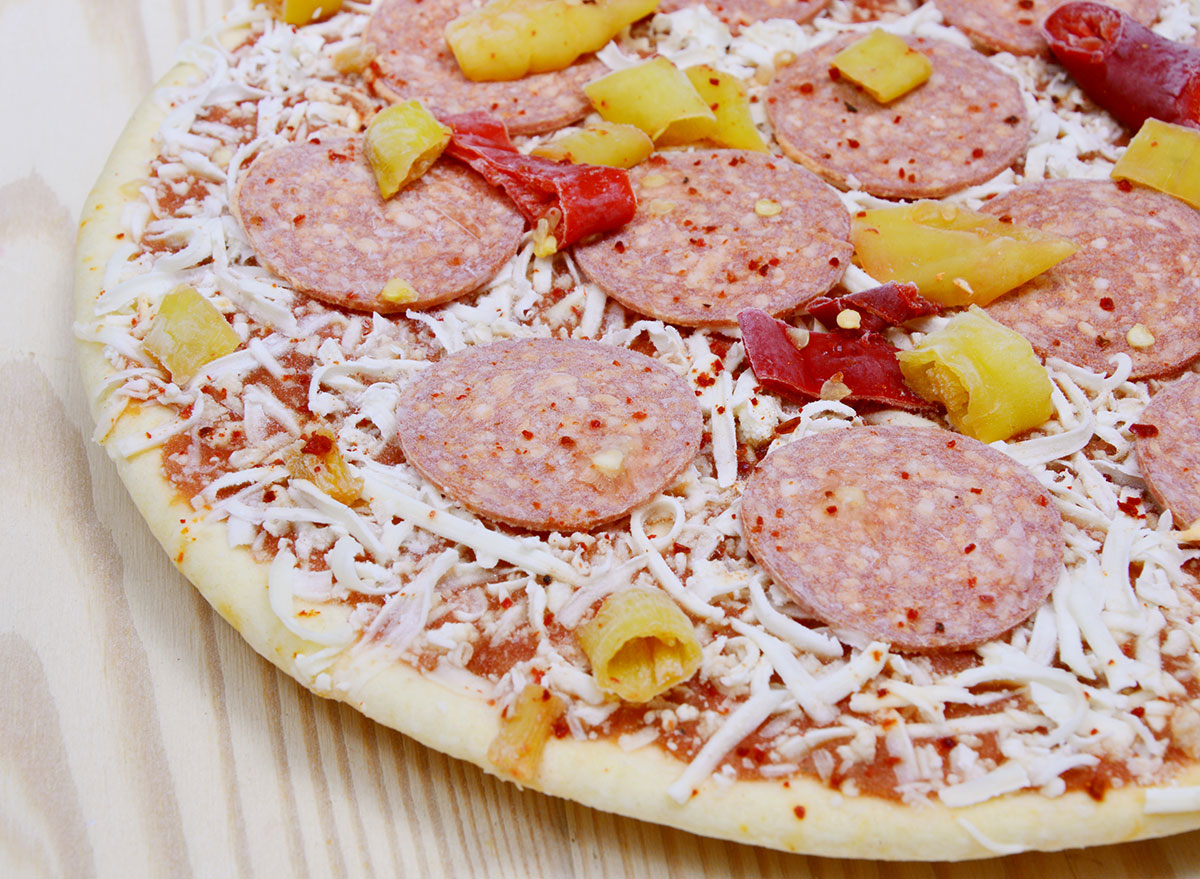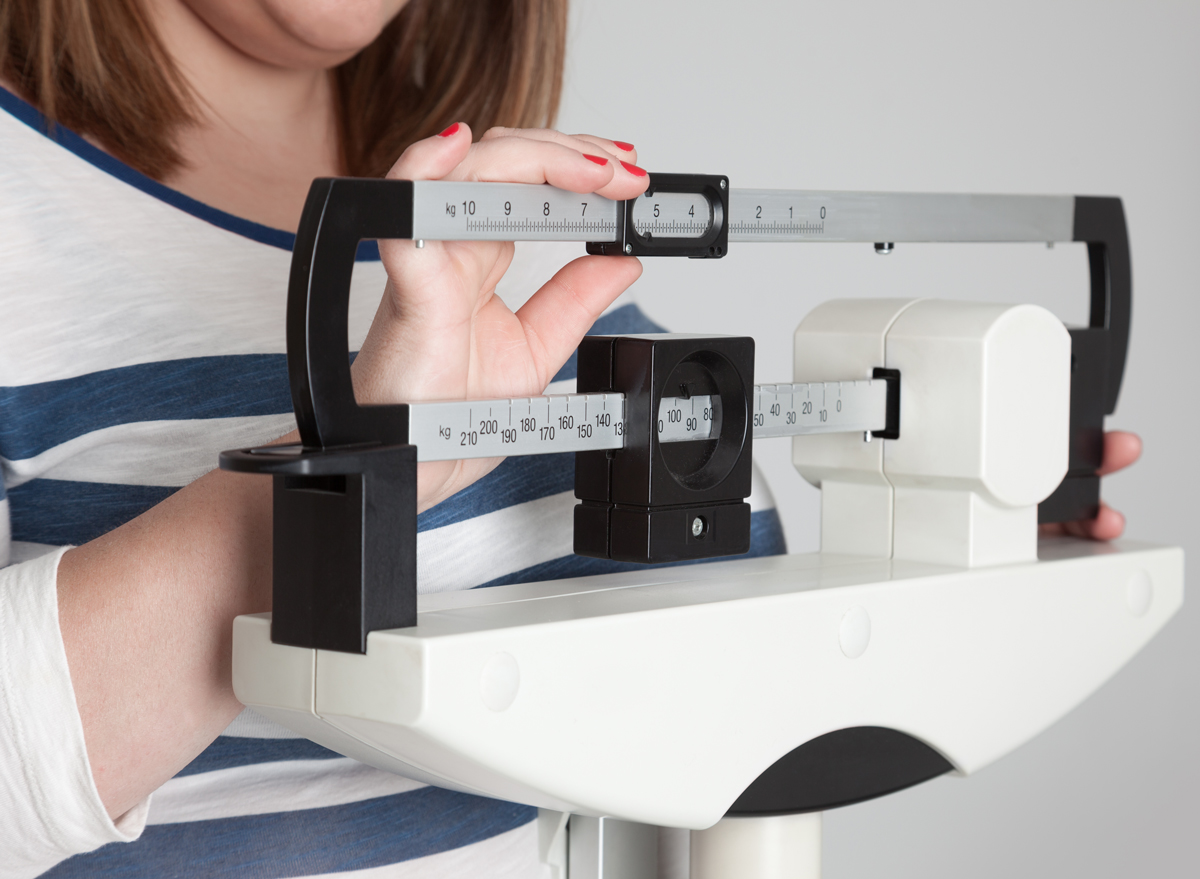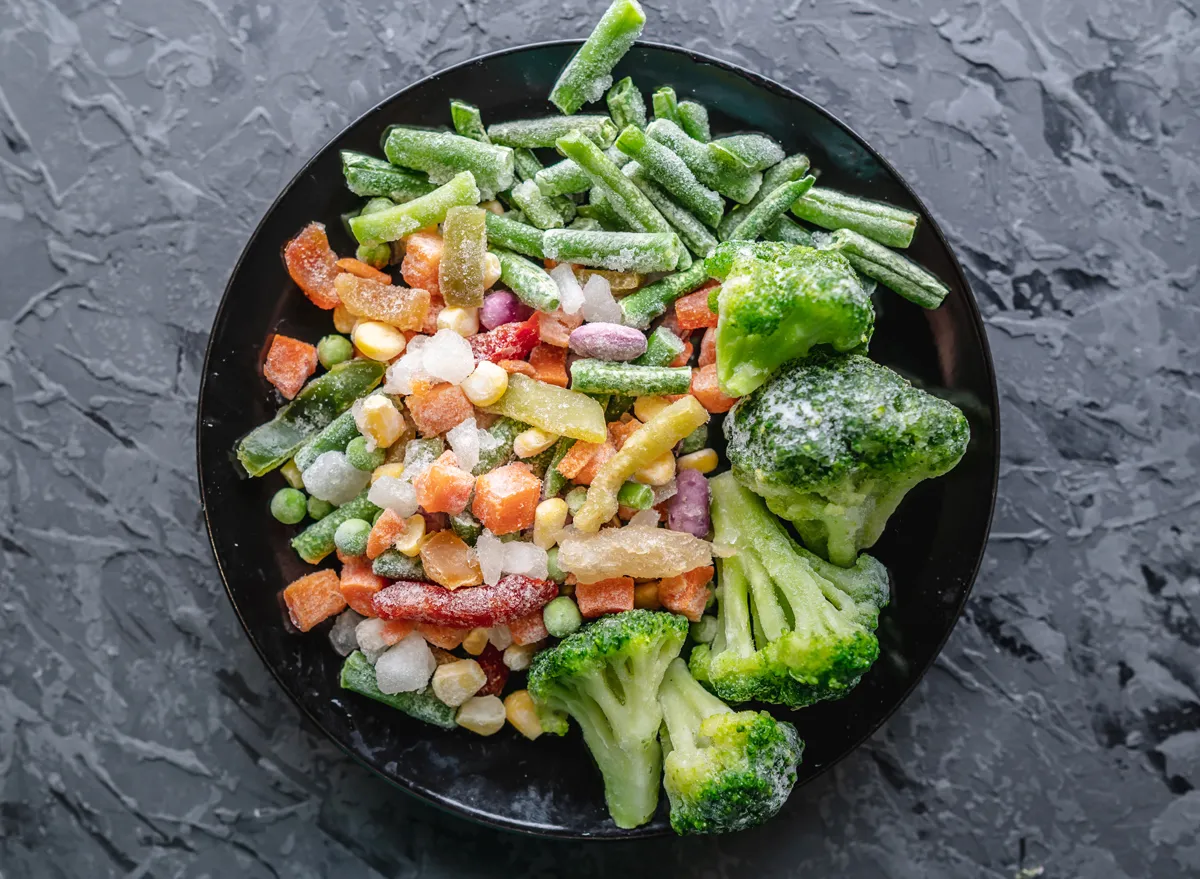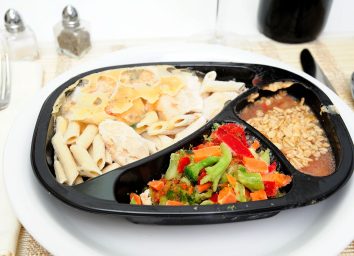Side Effects of Giving Up Frozen Foods, According to Science

We challenge you to go over to any friend or family member's house and open their freezer to find it completely empty. Most of us will always have something stocked in the freezer with one thing top of mind: frozen foods are incredibly convenient. Pop them in the microwave, toss them in the oven, or throw them in a quick stir fry—they're an easy way to have a meal that's ready in minutes.
But if you've read about things like 5 Worst Frozen Foods Making You Gain Weight, you may be considering tossing out your favorite freezer finds. While it's true that many frozen meals are loaded with health-draining levels of sodium, saturated fat, and even sugar—and it would do your body good to cut back on them—it's also a fact that there are many healthy frozen foods with plenty of benefits. So what happens if you choose to give up frozen foods? We dug into the science to determine the side effects, and for more on healthy eating, see When It Comes to Frozen Foods, These Are the Healthiest.
You may reduce your blood pressure.

Nearly half of American adults have high blood pressure, also known as hypertension, according to the CDC, but only 1 in 4 have this condition under control. The American Heart Association says that one way to lower your blood pressure is to reduce your sodium intake, and giving up frozen foods can help you do just that. The average frozen meal contains 935 milligrams of sodium or the equivalent of 40% of your daily recommended intake, according to an American Journal of Clinical Nutrition study. So by giving up this sodium-laden dish, you may help to get your blood pressure in check.
You may lessen the burden on your heart.

If frozen pizza is a staple in your freezer, you may be putting your heart at risk. This cheesy food is high in heart-taxing saturated fat and blood pressure-raising sodium found in the cured meats, like pepperoni and sausage, and dough, where it's used as a preservative. Consider DiGiorno's Croissant Crust Three Meat Pizza, which contains 25 grams of saturated fat in half a pie—that's 93 of your daily value! By giving up frozen foods like pizza, you'll help to reduce your intake of these two nutrients and give your heart a break. (Related: 10 Frozen Pizzas You Should Always Leave on Grocery Store Shelves.)
You may gain weight.

Surprising, but true. If frozen foods are a staple in your diet and you suddenly give them up, you could gain weight long term. Consider what the replacement could be: takeout. While just as convenient as frozen food, takeout tends to be much higher in calories than what you'd buy in the freezer aisle. In fact, the average fast-food order contains 836 calories while a combo meal contains a staggering 1,193 calories. On the other hand, the average frozen meal is anywhere between 200 and 400 calories. So you're almost doubling your calorie count with this one swap, which can lead to weight gain if done regularly.
You may lose weight.

Depending on what you choose to substitute a diet staple with, your weight can either go up or down. If you've been eating frozen meals for dinner and suddenly want to give them up and not eat anything in its place, you very well could lose weight. According to a recent Public Health Nutrition study, if you skip a meal, you could reduce your daily calorie intake anywhere between 252 calories (breakfast) and 350 calories (dinner). While this can help you lose weight, note that it does come at a cost. The researchers also found that your diet quality will decrease, and you'll consume fewer vegetables, greens, protein food, whole grains, and many others. If you are giving up frozen meals, consider making sure your other two meals are well-balanced to make up for the lost nutrients.
You may eat fewer healthy foods.

While oft-vilified, frozen meals still serve as a convenient source of food. Plus, when you're starving and hankering for a snack, they can be a decent source of protein and vegetables that you otherwise wouldn't have—especially if you choose to stick your hand into a bag of potato chips as an alternative. This is supported by the Academy of Nutrition and Dietetics, which notes that "Frozen foods can be a convenient and affordable way to incorporate healthful foods from every food group, including whole grains, fruits, vegetables, protein, and dairy." In addition to keeping frozen veggies stocked in your freezer, follow these 9 Easiest Ways to Start Eating Healthy to improve your health today.








